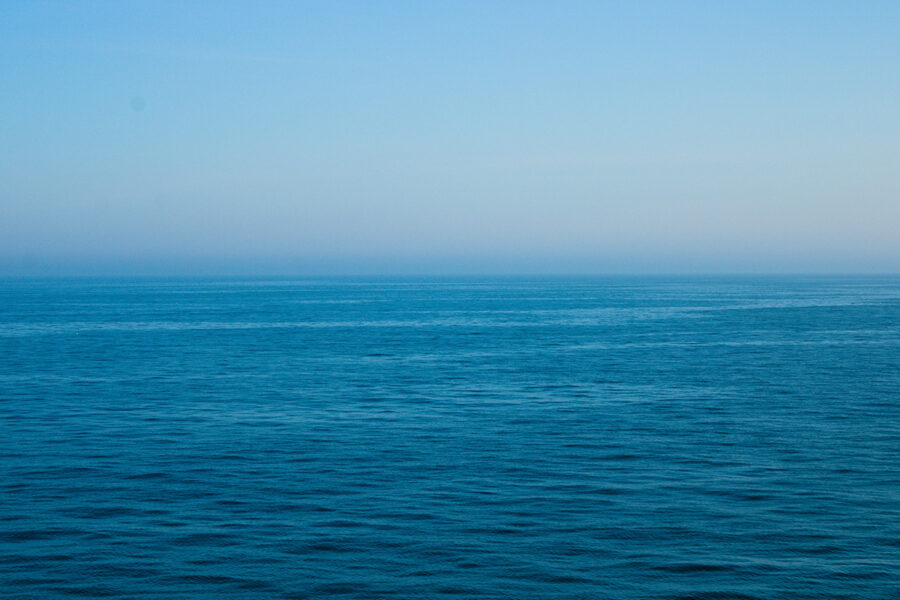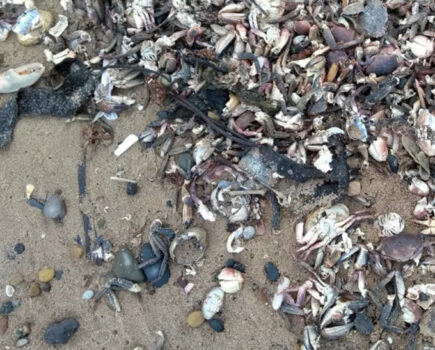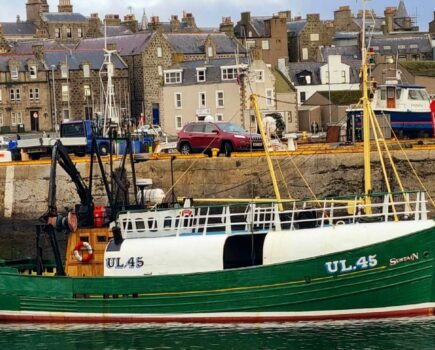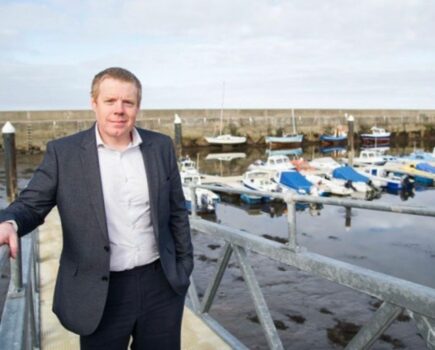The deal announced at the EU-UK summit in London on 19 May spans security and defence, strengthened co-operation, smoother trade and more. For the fishing industry, though, the one big headline is that European Union vessels will enjoy access to UK waters for a further 12 years.
There was little further detail available as FN went to press, but the 12-year deal is expected to be, in practical terms, a roll-over of current arrangements, with the approach of agreeing quotas annually between the UK, EU and Norway continuing. The current arrangements came into effect in 2021 as part of the Trade and Co-operation Agreement (TCA), and run until June 2026.
However, many had hoped that the initial five-year period was a stepping stone towards annual agreements on both quotas and access – negotiations in which the UK could bring increased leverage in return for giving EU vessels access to UK waters.
A multi-year agreement had to some extent been anticipated as part of the cost of Keir Starmer securing his overall deal. However the news that ‘full reciprocal access to waters’ will run until June 2038 – a period over twice as long as even that agreed in the TCA – has been met with disappointment and frustration across the industry.
While the UK fleet is technically no worse off than before in terms of quotas or access, the failure to make any gains for the catching sector will for many represent a huge loss of potential, and the ceding of a strong negotiating position.
It has been reported that during the negotiations process, the UK had offered a four-year deal on fisheries. This seemed to have been settled on until – in a case of ‘nothing is agreed until everything is agreed’ – it is thought that France made a late push for indefinite access for EU vessels to UK waters, during wrangling over the sanitary and phytosanitary (SPS) agreement and youth mobility scheme. Twelve years of access is thought to have been signed off in the early hours of the day of the summit, in order to secure agreement for the broader deal.
Elsewhere in the deal, the wider seafood supply chain should benefit from an agreement to open up access to the EU Single Market. The SPS agreement – which refers to the rules around food safety and hygiene – should make food and drink imports and exports quicker, easier and cheaper for UK firms than they have been since Brexit.
This is set to be a permanent arrangement.
The removal of some checks at borders would allow goods to flow more freely between the UK and the EU, as well as between Great Britian and Northern Ireland. With 70% of UK seafood heading to Europe, exporters should benefit from this part of the deal, which will also open up shellfish exports into that market.
The summit represented the political declaration, with considerably more work to be done to put the details and practicalities in place around the agreed high-level principles on all aspects of the deal. On fish, the published ‘common understanding’ simply states that both parties ‘note the political agreements leading to full reciprocal access to waters to fish until 30 June, 2038’.
Alongside the deal, Keir Starmer announced a new £360m Fishing and Coastal Growth Fund, which will invest in the UK fishing fleet and revitalise coastal communities.
Speaking at the summit’s press conference alongside the EU’s Ursula von der Leyen, Keir Starmer described the deal as ‘good for fishing’. He said the ‘stability’ of the long-term agreement was preferable to annual negotiations, and cited the benefits of the SPS agreement to cut red tape for those exporting to the EU market.
Many fishermen may well be left questioning whether, for them at least, the prime minister’s objectives to ‘support British businesses, back British jobs, and put more money in people’s pockets’ have really been met.
Devolved nations ‘should have had a say’
Ministers in the devolved administrations in Scotland, Wales and Northern Ireland were quick to respond to the deal, with the main comment being that with fisheries being a devolved matter, they should have been involved in the negotiations.
Scottish deputy first minister Kate Forbes said: “It beggars belief that this agreement has been reached by selling out Scotland’s fishing communities. Labour promised fishing communities in Scotland that their interests would be protected in this process, but this deal shows those promises counted for nothing.
“After years of being treated as pawns by successive UK governments, fishing communities in Scotland now find themselves in the worst of all worlds. Fishing was famously described as expendable when the UK joined Europe, and it is clear that attitude has not changed in Whitehall in the half-century since.
“Given the importance of fishing to Scotland, it is also astonishing that the Scottish Government was given no warning of this great betrayal of our fishing fleet. From Stornoway to Peterhead, fishing communities know that Labour’s promises mean nothing.”
Kate Forbes also restated the SNP’s view that ‘there is no deal that is as good for Scotland as being an independent member of the European Union’.
In a media interview, the Labour first minister of Wales Eluned Morgan broadly welcomed the UK-EU deal, with the perspective that in Wales ‘our fishing sector is important, but it’s not massive’. She also noted that she would have liked the Welsh Government to have more involvement in the negotiations.
Speaking in the Northern Ireland Assembly shortly after the deal was announced, Department of Agriculture, Environment and Rural Affairs secretary Andrew Muir MLA (Alliance Party) said: “The roll- over of the current agreement for a further 12 years until 2038 will bring a degree of certainty to that area, but I know that there are challenges around it. I am also conscious that the outcome is not a surprise.”
He also noted that while the devolved administrations had been asked for views by the UK Government the previous week, with his department providing input to the Executive Office, the Executive Office had failed to respond to the UK Government.
This story was taken from the latest issue of Fishing News. For more up-to-date and in-depth reports on the UK and Irish commercial fishing sector, subscribe to Fishing News here or buy the latest single issue for just £3.50 here.
Sign up to Fishing News’ FREE e-newsletter here.








